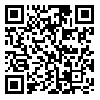BibTeX | RIS | EndNote | Medlars | ProCite | Reference Manager | RefWorks
Send citation to:
URL: http://edujournal.zums.ac.ir/article-1-11-en.html
Background and objective: Online education is one of the fastest growing modes of teaching which afford great flexibility in terms of how, when and where students can learn. This is particularly relevant in higher education since students might often need to manipulate their own learning.
A number of studies have compared learning outcomes across online courses with traditional ones
(e.g., Alavi, Yoo, and Vogel, 1997 Hiltz, 1993 Hiltz and Johnson, 1990 Leinder and Jarvenpaa, 1993 Piccoli, Ahmad and Ives, 2001).These and other research studies have shown that there are no significant differences between two modes of delivery.
Material and Methods: English language instruction in general and ESP in particular have benefited from such developments around the world. This research was conducted in order to compare the achievement of the participants toward an online new course. This is the first online course in ESP in the Ministry of Health.
Results: The course was developed according to the results of a needs analysis questionnaire. We conducted the study. The results correspond to some previous studies such as those of Russel (1999). The statistical analysis revealed that there was no significant difference in achievement of students who were learning English through the two modes of instruction.
Received: 2010/10/7 | Accepted: 2016/02/7 | Published: 2016/02/7
| Rights and permissions | |
 |
This work is licensed under a Creative Commons Attribution-NonCommercial 4.0 International License. |



